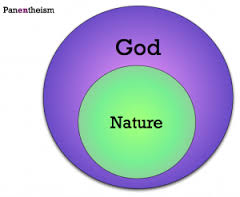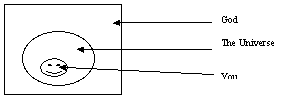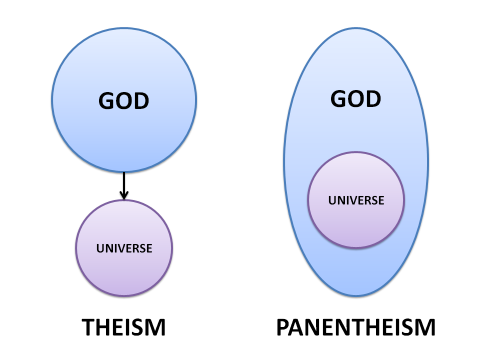- Jan 25, 2009
- 19,765
- 1,428
- Faith
- Oriental Orthodox
- Marital Status
- Private
- Politics
- US-Others
I think that some of the things you're saying here may be a matter of pulling the cart before the horse when it comes to saying that insects were never included as living creatures just like the other animals the Lord gave to eat.Say to the Israelites: Of all the animals that live on land, these are the ones (chaiyah) you may eat:
The word chayyah is just a basic term for animal or creature. Animals there is the word bhemah often translated beasts or cattle. It's also a somewhat generic term. The word we'd be looking for is nefesh.
KM Hebrew Dictionary: breath; by extension: life, life force, soul, an immaterial part of a person, the seat of emotion and desire; a creature or person as a whole: self, body, even corpse.This is what's used to describe the various creatures in Gen. 1 and is used of mannefesh chaiyah. I do see the word live there in the english NIV but that's a bit of an ad-lib apparently. The text is merely talking about land creatures, thus creatures that live on the land. But this is no way is saying these are nefesh creatures per se, and certainly isn't speaking of the locust as nefesh. It's merely saying they are edible. That something is edible doesn't necessarily mean they are nefesh creatures. Plants are a perfect example.
.
As said earlier, I think the view that insects do not have the breath of life in them is problematic on several accounts - for the scriptures never say that they do not have it simply because of the fact that man and living creatures on the ground were noted to have it.. Aquatic animals were not said to have the breath of life aspect to them specifically - but the Biblical writers were not seeking to repeat certain things to indicate what creatures did or did not have life in them.
As it is, if insects were not included in the "Breath of Life" category, why would the Lord have said he'd wipe them out and placed them in the category of living things?
Genesis 6:14
The Lord saw how great mans wickedness on the earth had become, and that every inclination of the thoughts of his heart was only evil all the time. 6 The Lord was grieved that he had made man on the earth, and his heart was filled with pain.7 So the Lord said, I will wipe mankind, whom I have created, from the face of the earthmen and animals, and creatures that move along the ground, and birds of the airfor I am grieved that I have made them. 8 But Noah found favor in the eyes of the Lord.
9 This is the account of Noah.
Noah was a righteous man, blameless among the people of his time, and he walked with God. 10 Noah had three sons: Shem, Ham and Japheth.
11 Now the earth was corrupt in Gods sight and was full of violence. 12 God saw how corrupt the earth had become, for all the people on earth had corrupted their ways. 13 So God said to Noah, I am going to put an end to all people, for the earth is filled with violence because of them. I am surely going to destroy both them and the earth. 14 So make yourself an ark of cypress[c] wood; make rooms in it and coat it with pitch inside and out. 15 This is how you are to build it: The ark is to be 450 feet long, 75 feet wide and 45 feet high.[d] 16 Make a roof for it and finish[e] the ark to within 18 inches[f] of the top. Put a door in the side of the ark and make lower, middle and upper decks. 17 I am going to bring floodwaters on the earth to destroy all life under the heavens, every creature that has the breath of life in it. Everything on earth will perish. 18 But I will establish my covenant with you, and you will enter the arkyou and your sons and your wife and your sons wives with you. 19 You are to bring into the ark two of all living creatures, male and female, to keep them alive with you. 20 Two of every kind of bird, of every kind of animal and of every kind of creature that moves along the ground will come to you to be kept alive. 21 You are to take every kind of food that is to be eaten and store it away as food for you and for them.
22 Noah did everything just as God commanded him.
7 The Lord then said to Noah, Go into the ark, you and your whole family, because I have found you righteous in this generation. 2 Take with you seven[g] of every kind of clean animal, a male and its mate, and two of every kind of unclean animal, a male and its mate, 3 and also seven of every kind of bird, male and female, to keep their various kinds alive throughout the earth. 4 Seven days from now I will send rain on the earth for forty days and forty nights, and I will wipe from the face of the earth every living creature I have made.
The Lord saw how great mans wickedness on the earth had become, and that every inclination of the thoughts of his heart was only evil all the time. 6 The Lord was grieved that he had made man on the earth, and his heart was filled with pain.7 So the Lord said, I will wipe mankind, whom I have created, from the face of the earthmen and animals, and creatures that move along the ground, and birds of the airfor I am grieved that I have made them. 8 But Noah found favor in the eyes of the Lord.
9 This is the account of Noah.
Noah was a righteous man, blameless among the people of his time, and he walked with God. 10 Noah had three sons: Shem, Ham and Japheth.
11 Now the earth was corrupt in Gods sight and was full of violence. 12 God saw how corrupt the earth had become, for all the people on earth had corrupted their ways. 13 So God said to Noah, I am going to put an end to all people, for the earth is filled with violence because of them. I am surely going to destroy both them and the earth. 14 So make yourself an ark of cypress[c] wood; make rooms in it and coat it with pitch inside and out. 15 This is how you are to build it: The ark is to be 450 feet long, 75 feet wide and 45 feet high.[d] 16 Make a roof for it and finish[e] the ark to within 18 inches[f] of the top. Put a door in the side of the ark and make lower, middle and upper decks. 17 I am going to bring floodwaters on the earth to destroy all life under the heavens, every creature that has the breath of life in it. Everything on earth will perish. 18 But I will establish my covenant with you, and you will enter the arkyou and your sons and your wife and your sons wives with you. 19 You are to bring into the ark two of all living creatures, male and female, to keep them alive with you. 20 Two of every kind of bird, of every kind of animal and of every kind of creature that moves along the ground will come to you to be kept alive. 21 You are to take every kind of food that is to be eaten and store it away as food for you and for them.
22 Noah did everything just as God commanded him.
7 The Lord then said to Noah, Go into the ark, you and your whole family, because I have found you righteous in this generation. 2 Take with you seven[g] of every kind of clean animal, a male and its mate, and two of every kind of unclean animal, a male and its mate, 3 and also seven of every kind of bird, male and female, to keep their various kinds alive throughout the earth. 4 Seven days from now I will send rain on the earth for forty days and forty nights, and I will wipe from the face of the earth every living creature I have made.
Genesis 7:20
The waters rose and increased greatly on the earth, and the ark floated on the surface of the water. 19 They rose greatly on the earth, and all the high mountains under the entire heavens were covered. 20 The waters rose and covered the mountains to a depth of more than twenty feet.[b][c] 21 Every living thing that moved on the earth perishedbirds, livestock, wild animals, all the creatures that swarm over the earth, and all mankind. 22 Everything on dry land that had the breath of life in its nostrils died. 23 Every living thing on the face of the earth was wiped out; men and animals and the creatures that move along the ground and the birds of the air were wiped from the earth. Only Noah was left, and those with him in the ark.
The waters rose and increased greatly on the earth, and the ark floated on the surface of the water. 19 They rose greatly on the earth, and all the high mountains under the entire heavens were covered. 20 The waters rose and covered the mountains to a depth of more than twenty feet.[b][c] 21 Every living thing that moved on the earth perishedbirds, livestock, wild animals, all the creatures that swarm over the earth, and all mankind. 22 Everything on dry land that had the breath of life in its nostrils died. 23 Every living thing on the face of the earth was wiped out; men and animals and the creatures that move along the ground and the birds of the air were wiped from the earth. Only Noah was left, and those with him in the ark.
And as it concerns the subject of animals and their souls, whereas some are of the mindset that animals are unimportant/lifeless, others are of the mindset that their having a spirit indicates a value beyond the physical. For what makes man different from the animals is not that he has a soul, but that he is made in the image of God (Gen. 1:26-27). The words "let us make" uses the same Hebrew word for "make" found in Ex. 20:4 in which God commands us to "not make" any graven image. In Psalm 78:50 we find an example of the usage of soul as life when the writer said in speaking of the people of Egypt (who tried in vain to prevent the Israelites from leaving their countrys slavery) that God spared not their soul from death, but gave their life over to the pestilence.
In this instance, the word soul (Hebrew nephesh) is used to denote the physical life of humans. But in Genesis 1:20,24, the identical Hebrew word is employed to speak of animals as living creatures (Hebrew nephesh hayyah). In this sense, then, yes, it is correct to say that animals have soulssince the word soul means only physical life. In responding to the question, Do animals have souls?, McCord wrote in his correspondence work "Do Animals Have Souls?, that "the word soul, nephesh, only means breath, as in Genesis 1:20 (ASV), Let the waters swarm with swarms of living creatures, nephesh hayyah, literally, living soul (1999).
It is true that at times the Bible uses the same terms to refer to the life principle/force in both humans and animals (e.g. Genesis 7:22), and that those terms may be used to refer to the immortal soul of humans (Ecclesiastes 12:7; Matthew 10:28). Revelations 16:3 also refers to the souls of animals when it states that "The second angel poured out his bowl upon the sea, so that it turned to blood as of a corpse, and every living soul that was in the sea died." The exact Greek word for soul, "psyche," was used in the original texts. The scriptures discuss how animals have the same "breath of life" as do humans (Genesis 7:15, 22)...and Numbers 16:22 refers to the Lord as "the God of spirits of all flesh." In Numbers 31:28, God commands Moses to divide up among the people the cattle, sheep, asses and human prisoners captured in battle and to give to the Lord "one soul of five hundred" of both humans and animals alike.
Even Psalm 104:27-30 says God provides for animals and their ensoulment:
"O Lord, how innumerable are Thy works; in wisdom Thou hast made them all! The earth is full of Thy well-made creations. All these look to Thee to furnish their timely feed. When Thou providest for them, they gather it. Thou openest Thy hand, and they are satisfied with good things. When Thou hidest Thy face, they are struck with despair. When Thou cuttest off their breath, in death they return to their dust. Thou sendest Thy Spirit and more are created, and Thou dost replenish the surface of the earth."
Of course, it must always be remembered that Man alone was created in the image and likeness of God (Genesis 1:26-27)something that may not be said of animals. God breathed His Spirit into Adam in Gen. 2:7. ...and because we are made in the image of God, murder is forbidden (Gen. 9:6)---for it neglects our own value/worth in light of our unique status in life when it comes to communion/creativity and reason with the Creator we're different. Being made in the image and likeness of God means that human beings are like God, capable of spirituality, with mind, emotion, and will, and they have a part of their being that continues after death. If pets/animals do have a soul or immaterial aspect, it must therefore be of a different and lesser quality. ...unless there's a different level of things that are to be considered when it comes to how man having an immortal soul doesn't mean that other creatures don't have eternal souls since even the angels---not made in the image of God (as well as other creatures in Revelation 4)---are immortal beings. Immortality isn't based necessarily on being made in God's Image...
Again, scripture says a great deal about animals, portraying them as Earths second most important inhabitants. God entrusted animals to us, and our relationships with animals are a significant part of our lives.
For a good resource on the issue, one can go online/consider looking up an article Frank Hoffman entitled All Creatures Here Below
- Chapter 3- Of Life and Soul: A Book about Souls and Spirits of Animals ( )--and the other one could consider looking up is under the name of "Do Animals Have Souls? -PleaseConvinceMe.com" ( ).
Upvote
0



